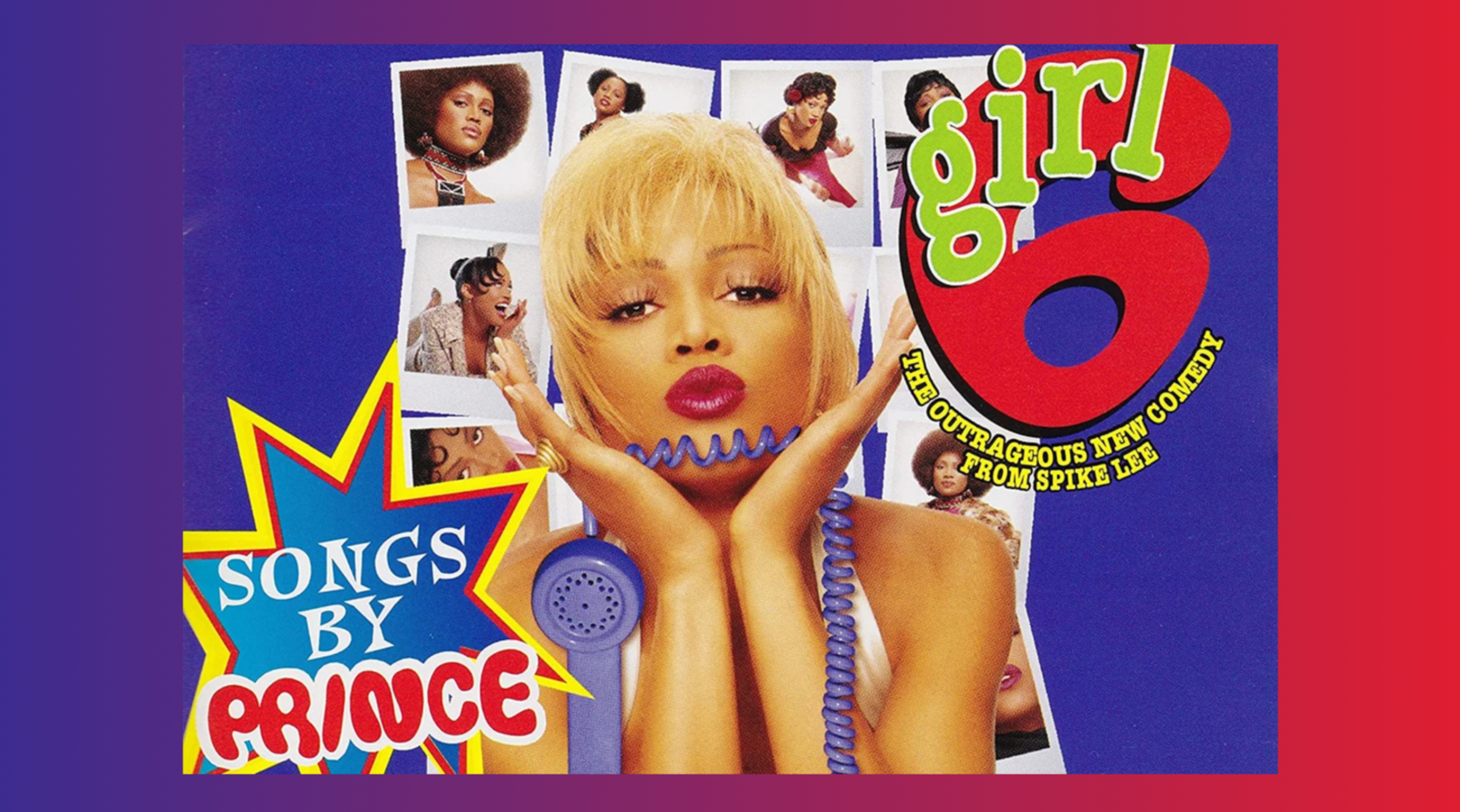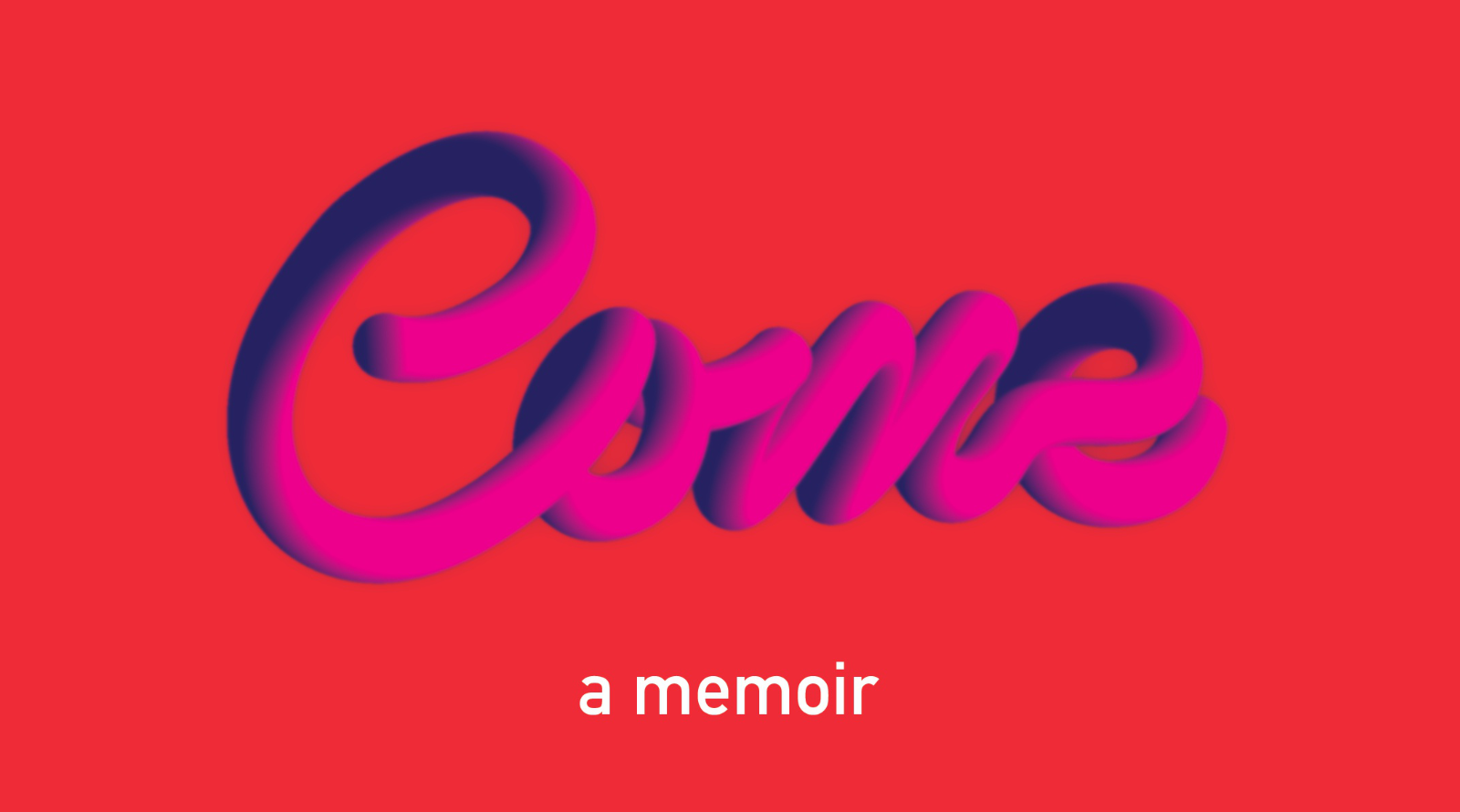This movie has no business being so underrated.
One of the least-known films in Spike Lee’s oeuvre, Girl 6 is a deep cut—and one of his more experimental works. The cinematography and style depart from his usual aesthetic, lending themselves expertly to this story of fantasy, desire, and performance. It follows a phone sex operator navigating the industry while chasing stardom. With a soundtrack composed entirely of Prince songs and cameos from Madonna, Naomi Campbell, and Law & Order’s Richard Belzer, how could anyone hate it?!
The film opens with Judy (Theresa Randle) auditioning for Hollywood’s hot new director, “QT” (Quentin Tarantino playing himself). He interrupts her monologue, ordering her to “be quiet and listen up” before proclaiming that he’s making “the greatest romantic African American film of all time”—directed, of course, by himself. It’s an expert-level troll from Spike Lee, a filmmaker known for his critiques of Hollywood’s racial dynamics.
QT then demands that Judy remove her shirt, insisting it’s necessary for the role. Reluctantly, she complies, only to storm out moments later, humiliated and deflated. It’s a brutal yet familiar moment for many women in the entertainment industry. Shaken by the experience, Judy later responds to a job ad for a phone sex hotline. At first, she’s hesitant. But like so many women who’ve faced relentless objectification, she makes a pragmatic choice: if the world insists on sexualizing her, she might as well profit.
bell hooks, in her essay Good Girls Look the Other Way, argues that Girl 6 doesn’t exploit objectification—it interrogates the cultural obsession with stardom and desire. She also challenges the notion that sex workers are inherently broken, writing: “From the get-go, Girl 6 lets audiences know that women working in this aspect of the sex industry, as in so many other areas, are doing it for the money. And that sometimes it can be pleasurable work like any other job any other worker does for the money, while at other times it is dehumanizing, degrading labor.”
Judy turns out to be exceptionally good at her job, and she’s soon intoxicated by the power and creative expression it allows her. For the first time, she has the audience she’s always craved. Effortlessly embodying a range of personas, she comes home from work giddy with excitement, bragging to her neighbor about her repeat callers. She’s not just working—she’s performing. And that performance, like all great acting, comes with a price.
Her coworker, Girl 39 (Debi Mazar), warns her against getting too immersed in the job—to never climax with a client. But Judy doesn’t listen. She’s seduced not just by the attention but by the opportunity to creatively engage with sexuality, even if it isn’t entirely on her own terms. Her unraveling is, in part, driven by the phone sex industry. And while I wish the movie relied less on the moralistic trope of sex work leading to personal downfall, Girl 6 is saying something deeper. It’s not just about the risks of the job—it’s about the blurry boundaries between selfhood, performance, and desire.

This is made even clearer through Judy’s fantasy sequences, where she recreates classic Black film and television moments, casting herself as the leading lady. Fantasy is her default state, but it raises an unsettling question: does she have an identity outside of performance at all?
The deeper she falls into her role, the more she loses herself in Lovely, her on-the-phone persona. Soon, she’s no longer just performing for clients—she’s performing for herself. Her fantasies place her in the shoes of legendary Black actresses like Dorothy Dandridge and Pam Grier, embodying the confident, powerful heroines they played. But these roles, iconic as they are, come with their own limitations.
Throughout Hollywood history, Black actresses have been confined to rigid archetypes—hypersexualized vixens, nurturing maids, or defiant “strong Black women,” all of which reduce them to symbols rather than fully realized characters. Dandridge, the first Black woman nominated for a Best Actress Oscar, was celebrated for her beauty but repeatedly cast in roles that emphasized her exoticism rather than her talent. Pam Grier, as groundbreaking as she was in Blaxploitation films, was often framed through the male gaze—an untouchable badass, but still an object of sexual consumption.
Judy’s struggle mirrors this reality. She wants to be a serious actress, but the roles available to women like her are limited—fetishized, reductive, and steeped in a legacy of objectification. She’s faced with a cruel irony: while Hollywood sees her as nothing more than a sexual object, the phone sex industry allows her to reclaim that objectification, if only temporarily. Through Lovely, she gets to shape her own narrative, seducing on her own terms. But as the line between fantasy and self blurs, the question lingers—has she really gained control, or has she just found a more palatable way to survive within the constraints placed upon her?
One of the funniest moments in the film occurs during a phone sex training session, when Naomi Campbell’s character is given a fake call to practice her dominatrix persona. She barks at the imaginary client, “Didn’t I tell you not to let your dick drip? Now you’re getting an ultra spank!” Camp Gold!!

It reminds me of why I can romanticize my days working in houses and parlors. When everyone gets along, there’s no better feeling than counting your money after a session and laughing together about all the ridiculous things you just said and did. Girl 6 lets us see the behind the scenes of agency based sex work, the joy, camaraderie, and absurdity that can come along with the gig.

It’s a shame this movie doesn’t get more recognition. For all its surrealism and stylistic flourishes, it manages to acknowledge the power, pleasure, and pitfalls of both the adult industry and Hollywood without completely flattening its protagonist into a stereotype.
If you liked Girl 6, try Spike Lee’s Summer of Sam—another underrated gem that deserves more love.
Are you a sex worker with a story, opinion, news, or tips to share? We'd love to hear from you!
We started the tryst.link sex worker blog to help amplify those who aren't handed the mic and bring attention to the issues ya'll care about the most. Got a tale to tell? 👇☂️✨





